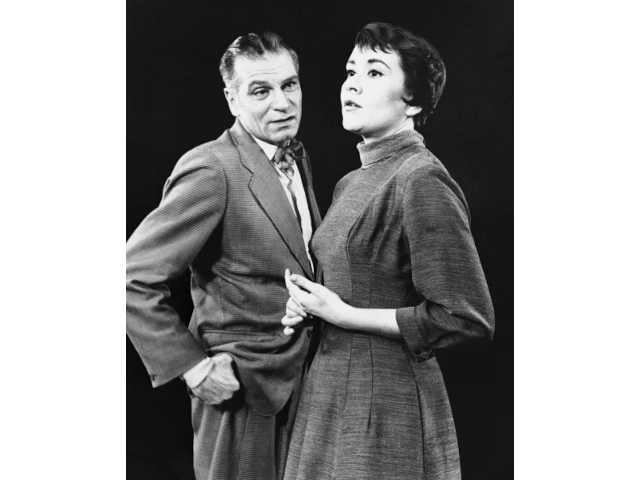Dame Joan Plowright, renowned actress and widow of Sir Laurence Olivier, dies at 95
Dame Joan Plowright, celebrated actress with a 60-year career, passed away peacefully at 95 on January 16.

Dame Joan Plowright, one of Britain’s most respected stage and screen actresses, has passed away at the age of 95.
Plowright’s death was confirmed by her family on January 16, 2025, stating that she peacefully passed away at Denville Hall, surrounded by loved ones. A statement from her family described her as a "loving and deeply inclusive human being," expressing pride in her long and illustrious career and her personal strength in overcoming challenges.
Plowright’s career spanned an impressive 60 years, making her a significant figure in British theatre. She began her career in the 1950s, rising to prominence in London’s West End before becoming a leading member of the National Theatre. She worked alongside her husband, Sir Laurence Olivier, whom she married in 1961 after starring opposite him in the stage production of 'The Entertainer'. Their partnership, both on and off stage, earned them both Bafta nominations for the 1960 film adaptation of the play.
In addition to her theatre success, Plowright enjoyed a notable film career. Her performance in the 1991 film 'Enchanted April' earned her a Golden Globe and an Oscar nomination for Best Supporting Actress. Other notable film roles included 'Tea with Mussolini' (1999) and 'Equus' (1977), where she worked alongside Richard Burton.
Throughout her career, Plowright was celebrated for her versatility, starring in both classic plays and contemporary works. Her role in George Bernard Shaw's 'Saint Joan' (1963) earned her the Best Actress award at the Evening Standard Theatre Awards, while her performance in 'Filumena' (1978) led to her winning a Society of West End Theatre Award, later renamed the Olivier Awards in honor of her husband.
As a member of Olivier's groundbreaking National Theatre company, Plowright was part of a remarkable ensemble that included stars such as Maggie Smith, Michael Redgrave, and Michael Gambon. The National Theatre’s current director, Rufus Norris, paid tribute to Plowright’s immense contributions, highlighting her celebrated performances in plays like 'Uncle Vanya', 'Much Ado About Nothing', and 'Three Sisters'. Norris emphasized her profound impact both on and off stage, noting her dedication to the craft and influence on the development of the National Theatre.
Plowright’s wit and humor were widely admired, and she was known for using her quick sense of humor to navigate the pressures of being Olivier’s wife while working in a demanding artistic environment. Playwright David Hare fondly remembered her as an incredibly wise and friendly presence, even during his early career when he worked with her at the age of 23.
In her later years, Plowright’s health declined as she lost her eyesight, eventually retiring from acting due to blindness. Despite this, she cherished her final decade in Sussex, enjoying the company of friends and family. The actress, who had been retired for over a decade, was also known for her candid discussions on mental health, often using her platform to help others.
Her death has prompted tributes from across the theatre world, with West End theatres dimming their lights for two minutes in her honor. UK Theatre co-chief executive Hannah Essex called her an "iconic and deeply respected figure," while the operators of the Plowright Theatre in her hometown of Scunthorpe also paid tribute to her legacy. The theatre, which was named in her honor, said that Plowright’s death marked the loss of "one of the most distinguished actors of her generation."
Plowright is survived by her family, including her children and grandchildren, and leaves behind a lasting legacy in the world of theatre and film. Her extraordinary contributions to the arts, both on and off the stage, have cemented her place as one of Britain’s most cherished acting legends.



















COMMENTS
Comments are moderated and generally will be posted if they are on-topic and not abusive.
For more information, please see our Comments FAQ